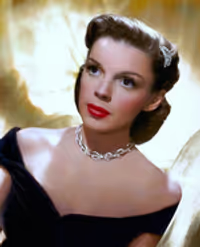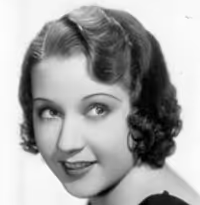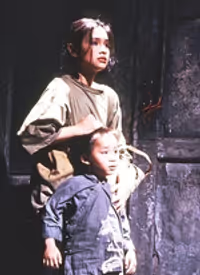Steven Spielberg's WEST SIDE STORY - News & Discussion Thread
degrassifan
Broadway Legend Joined: 1/23/08
#950Steven Spielberg's WEST SIDE STORY - News & Discussion Thread
Posted: 9/29/21 at 3:02pm
Hi all! I attended a WSS virtual discussion with Tony Kushner as the guest speaker, and this is some info I got --
After "Lincoln," Spielberg invited Kushner to lunch and asked him to write WSS. At first Kushner was like "Wow, this guy is crazy," but then after hearing his vision and knowing it's a new adaptation of the stage show, he was onboard.
As confirmed earlier, the story is set around the time when San Juan Hill was in the process of being demolished in order to build Lincoln Center and how that affected the Puerto Rican community.
The filmmakers did everything they could to make the story authentic, even down to the specific way that Puerto Ricans make their coffee (which was eventually cut from the script). They even realized that the way today's Puerto Ricans would phrase things is different from how Puerto Ricans in 1957 would say something. Some cast members and crew members would even call up their grandmothers to confirm how certain things were said back in their day.
There is a lot of Spanish spoken in the film, without subtitles.
Kushner wrote lengthy biographies of every character so that the actors could use them to dive deeper with their characters. The lengthiest one was for Valentina (Rita Moreno), the widow of the Jewish drug store owner. Hers was interesting because Valentina is around the same age as Rita, so her biography included what her life was like in Puerto Rico before the 20th century and how she wound up in this NY drugstore in 1957. Kushner is not sure if the actors used the biographies in their performances except for David Alvarez and Rachel Zegler. Alvarez and Zegler asked "Where did our parents come from?" and things of that nature, and the moderator said you could see in their performances of their brother/sister relationship that they used the bios.
The Jets in the new film are white teens whose parents are from immigrant groups that had come to the US and had mostly moved up the ladder, while the Jets and their parents are people that were left behind and didn't make it and were disorganized in various ways. They are street rats, violent, and racist. The Sharks have come together to protect their community from the Jets.
Kushner felt that the creators of the show (Sondheim, Laurents, Bernstein, Robbins) tried to maintain the balance seen in Romeo & Juliet with the Montagues vs Capulets, but they kept getting thrown by it because they were progressive and knew racism and xenophobia were wrong, so their sympathies were more with the Sharks, however, there were places in the show where they made mistakes and tried to maintain the balance of having good people on both sides, but the fundamental truth of WSS is racism is wrong. The Jets are clearly racist in the original and the Sharks aren't, even though they seem to share some common ground; therefore, in this new version, the prologue is very different and you know clearly whose side you're on almost immediately.
According to the moderator, it's a long film that covers a lot, but it doesn't seem long.
The new movie is closer to the original Broadway show. Kushner grew up with the original cast album and didn't see the 1961 film until college, so when writing this movie he went back to the 1957 source. He thought the order of the songs in the Broadway show was more interesting and daring. For instance, he liked how in the show, Maria sings "I Feel Pretty" at the top of Act Two and she doesn't know but the audience knows that her life is basically over. It's poignant that she goes from the heights of joy to the depths of despair. It's safe to say "I Feel Pretty" will be after the rumble in this version. No word on "Cool" or "Krupke," but I'm leaning more on their stage placements.
In terms of "America," the new version will be a hybrid of the 1957 lyrics (primarily Rosalia's part in the introduction of the song, and some lines not used in the 1961 film like "Nobody knows in America Puerto Rico's in America."![]() ) and the 1961 lyrics with the argument between the men vs the women.
) and the 1961 lyrics with the argument between the men vs the women.
#951Steven Spielberg's WEST SIDE STORY - News & Discussion Thread
Posted: 9/29/21 at 3:54pm
That's awesome degrassifan that you got so much info. Were other things discussed during the panel like: How did Spielberg/Kushner/Peck visualize the musical numbers for this version? Other than a return to some of the 57 lyrics of "America", are there more elements of the original musical here that were gone in the 61 film? What part does Curtiss Cook's new character Abe play in this new version? And did the creative team talk about the casting process?
Thanks for sharing. ![]()
Globefan
Broadway Legend Joined: 10/31/12
#952Steven Spielberg's WEST SIDE STORY - News & Discussion Thread
Posted: 9/29/21 at 5:53pm
degrassifan said: "Hi all! I attended a WSS virtual discussion with Tony Kushner as the guest speaker, and this is some info I got --
After "Lincoln," Spielberg invited Kushner to lunch and asked him to write WSS. At first Kushner was like "Wow, this guy is crazy," but then after hearing his vision and knowing it's a new adaptation of the stage show, he was onboard.
As confirmed earlier, the story is set around the time when San Juan Hill was in the process of being demolished in order to build Lincoln Center and how that affected the Puerto Rican community.
The filmmakers did everything they could to make the story authentic, even down to the specific way that Puerto Ricans make their coffee (which was eventually cut from the script). They even realized that theway today'sPuerto Ricans would phrase things is different fromhow Puerto Ricans in 1957 would say something. Some cast members and crew members would even call up their grandmothers to confirm how certain things were said back in their day.
There is a lot of Spanish spoken in the film, without subtitles.
Kushner wrote lengthy biographies of every character so that the actors could use them to dive deeper with their characters. The lengthiest one was for Valentina (Rita Moreno), the widow of the Jewish drug store owner. Hers was interesting because Valentina is around the same age as Rita, so her biography included what her life was like in Puerto Rico before the 20th century and how she wound up in this NY drugstore in 1957. Kushner is not sure if the actors used the biographies in their performances except for David Alvarez and Rachel Zegler. Alvarez and Zegler asked "Where did our parents come from?" and things of that nature, and the moderator said you could see in their performances of their brother/sister relationship that they used the bios.
The Jets in the new film are white teens whose parents are from immigrant groupsthat had come to the US and had mostly moved up the ladder, while the Jets and their parents are people that were left behind and didn't make it and were disorganized in various ways. They are street rats, violent, and racist. The Sharks have come together to protect their community from the Jets.
Kushner felt that the creators of the show (Sondheim, Laurents, Bernstein, Robbins) tried to maintain the balance seen in Romeo & Juliet with the Montagues vs Capulets, but they kept getting thrown by it because they were progressive and knew racism and xenophobia werewrong, so their sympathies were more with the Sharks, however,there were places in the show where they made mistakes and tried to maintain the balance of having good people on both sides, but the fundamental truth of WSS is racism is wrong. The Jets are clearly racist in the original and the Sharks aren't, even though they seem to share some common ground; therefore, in this new version, the prologue is very differentand you know clearly whose side you're on almost immediately.
According to the moderator, it's a long filmthat covers a lot, but it doesn't seemlong.
The new movie is closer to the original Broadway show. Kushner grew up with the original cast album and didn't see the 1961 film until college, so when writing this movie he went back to the 1957 source. He thought the order of the songs in the Broadway show was more interesting and daring. For instance, he liked how in the show, Maria sings "I Feel Pretty" at the top of Act Two and she doesn't know but the audience knows that her life is basically over. It's poignant that she goes from the heights of joy to the depths of despair. It's safe to say "I Feel Pretty" will be after the rumble in this version. No word on "Cool" or "Krupke," but I'm leaning more on their stage placements.
In terms of "America," the new version will be a hybrid of the 1957 lyrics (primarily Rosalia's part in the introduction of the song, and some lines not used in the 1961 film like"Nobody knows in America Puerto Rico's in America."![]() ) and the 1961 lyrics with the argument between the men vs the women."
) and the 1961 lyrics with the argument between the men vs the women."
Did the Somewhere Ballet come up?
degrassifan
Broadway Legend Joined: 1/23/08
#953Steven Spielberg's WEST SIDE STORY - News & Discussion Thread
Posted: 9/29/21 at 6:40pm
Musical Master said: "That's awesome degrassifan that you got so much info. Wereother things discussed during the panel like: How did Spielberg/Kushner/Peck visualize the musical numbers for this version? Other than a return to some of the 57 lyrics of "America", are there more elements of the original musical here that were gone in the 61 film? What part does Curtiss Cook'snewcharacter Abe play in this new version? And did the creative team talk about the casting process?
Thanks for sharing.![]() "
"
Of course!! :) It wasn't an industry panel or anything. It's part of an educational series on West Side Story through Brooklyn College that I found online. It's open for anyone and everyone to attend. Down below is a link to more info about future panels. There was nothing else discussed. Trust me, I would've told you guys EVERYTHING West Side Story-related if I got all the tea. What I wrote was basically the bulk of WSS topics. The rest of the discussion centered on Puerto Rican history, the research Kushner did when writing the script, and his advice to young people who want to write for stage and film. He was lowkey long-winded in his responses, so they barely got to questions. Nothing else was covered. Nothing about Abe, Somewhere Ballet, choreography, etc. I tried to get more info, but time was up. It was literally Kushner, the professor, and another professor that worked as a historical consultant on the film. I believe the next discussion on October 13 will center on casting!
Brooklyn College’s Department of Puerto Rican and Latino Studies Presents Educational Series on West Side Story
#954Steven Spielberg's WEST SIDE STORY - News & Discussion Thread
Posted: 9/29/21 at 7:46pm
Thanks a bunch. Honestly, hearing about this stuff is very interesting and I can't wait for the behind the scenes stuff to come around.
Globefan
Broadway Legend Joined: 10/31/12
#955Steven Spielberg's WEST SIDE STORY - News & Discussion Thread
Posted: 9/29/21 at 8:28pm
Too bad the Zoom wasn't archived
degrassifan
Broadway Legend Joined: 1/23/08
#956Steven Spielberg's WEST SIDE STORY - News & Discussion Thread
Posted: 9/29/21 at 8:29pm
It was recorded, but not sure where it will show up.
#957Steven Spielberg's WEST SIDE STORY - News & Discussion Thread
Posted: 9/30/21 at 12:37am
degrassifan said: "It was recorded, but not sure where it will show up."
Possibly YouTube.
#958Steven Spielberg's WEST SIDE STORY - News & Discussion Thread
Posted: 9/30/21 at 10:24am
If you listen to the Awards Chatter podcast, this week's episode is an interview with Rita Moreno who discusses the similar changes to the film adaptation in addition to her experience working on the film, interacting with Ariana De Bose, etc.
https://podcasts.apple.com/us/podcast/awards-chatter/id1039032256
degrassifan
Broadway Legend Joined: 1/23/08
#959Steven Spielberg's WEST SIDE STORY - News & Discussion Thread
Posted: 9/30/21 at 5:13pm
jacobsnchz14 said: "If you listen to the Awards Chatter podcast, this week's episode is an interview with Rita Moreno who discusses the similar changes to the film adaptation in addition to her experience working on the film, interacting with Ariana De Bose, etc.
https://podcasts.apple.com/us/podcast/awards-chatter/id1039032256"
Thanks for posting! It was a very insightful listen!
Globefan
Broadway Legend Joined: 10/31/12
#960Steven Spielberg's WEST SIDE STORY - News & Discussion Thread
Posted: 9/30/21 at 9:04pm
I tried rewatching the 1961 film again last night and I just couldn't, especially now that the new film exists.
#961Steven Spielberg's WEST SIDE STORY - News & Discussion Thread
Posted: 10/1/21 at 12:14am
It's interesting that Rita said she obviously had disgust at the original stage lyrics to "America", but Sondheim was going to have it revised and changed before she let her feelings known. Neat little details like that are very interesting to know when it comes to film knowledge. Also I can't wait for footage of the rehearsals to finally appear and that there's a featurette about Justin Peck and his new choreography.
#962Steven Spielberg's WEST SIDE STORY - News & Discussion Thread
Posted: 10/1/21 at 1:38am
Globefan said: "I tried rewatching the 1961 film again last night and I just couldn't, especially now that the new film exists."
You mean the new film that has NOT been released yet an you haven’t seen?! Seriously? Give me a break!
Ridiculous
It’s your loss because it’s a pretty brilliant film.
Betting BIG money this new version will NEVER replace the brilliance of the original….and it ain’t gonna win 10 Oscars either…
#963Steven Spielberg's WEST SIDE STORY - News & Discussion Thread
Posted: 10/1/21 at 2:06am
CarlosAlberto said: "Globefan said: "I tried rewatching the 1961 film again last night and I just couldn't, especially now that the new film exists."
You mean the new film that has NOT been released yet an you haven’t seen?! Seriously? Give me a break!
Ridiculous
It’s your loss because it’s a pretty brilliant film.
Betting BIG money this new version will NEVER replace the brilliance of the original….and it ain’t gonna win 10 Oscars either…"
Ditto
Globefan
Broadway Legend Joined: 10/31/12
#964Steven Spielberg's WEST SIDE STORY - News & Discussion Thread
Posted: 10/1/21 at 1:48pm
I know my opinion is unpopular.
rattleNwoolypenguin
Broadway Legend Joined: 10/11/11
#965Steven Spielberg's WEST SIDE STORY - News & Discussion Thread
Posted: 10/1/21 at 2:51pm
Listen if the new one is wonderful
What a gift to have them both. What a wonderful gift and a fun binge watch weekend someday
Globefan
Broadway Legend Joined: 10/31/12
#966Steven Spielberg's WEST SIDE STORY - News & Discussion Thread
Posted: 10/1/21 at 2:53pm
rattleNwoolypenguin said: "Listen if the new one is wonderful
What a gift to have them both. What a wonderful gift and a fun binge watch weekend someday"
I guess I just have a bias towards newer adaptations.
rattleNwoolypenguin
Broadway Legend Joined: 10/11/11
#967Steven Spielberg's WEST SIDE STORY - News & Discussion Thread
Posted: 10/1/21 at 3:17pm
Honestly, it was when Tony Kushner signed on I started rooting for it. And the weakest aspect of West Side is some of the stilted dialogue by Laurents.
It's clearly not a cash grab and THAT's why I'm excited.
Globefan
Broadway Legend Joined: 10/31/12
#968Steven Spielberg's WEST SIDE STORY - News & Discussion Thread
Posted: 10/1/21 at 3:29pm
rattleNwoolypenguin said: "Honestly, it was when Tony Kushner signed on I started rooting for it. And the weakest aspect of West Side is some of the stilted dialogue by Laurents.
It's clearly not a cash grab and THAT's why I'm excited."
It doesn't feel like Oscar bait.
#969Steven Spielberg's WEST SIDE STORY - News & Discussion Thread
Posted: 10/1/21 at 10:25pm
rattleNwoolypenguin said: "Honestly, it was when Tony Kushner signed on I started rooting for it. And the weakest aspect of West Side is some of the stilted dialogue by Laurents.
It's clearly not a cash grab and THAT's why I'm excited."
Tony Kushner was involved with Steven Spielberg and his version of West Side Story since Lincoln was finished back in 2012. So this new film unmistakably feels like an actual passion project that has so far avoided the modern Hollywood movie musical "Oscar Bait" problem that has plagued film musicals in recent years like: The Phantom of the Opera, Rent, The Producers, Nine, Les Misérables, Cats, Dear Evan Hansen etc. It's this film's crew, and more importantly, it's cast, that has made me very optimistic that this one will turn out to be something special.
After all, Spielberg has always wanted to make a lavish, classical-style movie musical at least since he made Close Encounters of a Third Kind, finding film projects that almost became musicals (1941 and Hook) but he never followed through with those plans for different reasons. With West Side Story being one of his top favorite musicals since he was a kid, he has finally found the project that will allow that dream to come true.
Globefan
Broadway Legend Joined: 10/31/12
#970Steven Spielberg's WEST SIDE STORY - News & Discussion Thread
Posted: 10/1/21 at 11:20pm
I hope the new Making of book has some casting anecdotes about who might've been considered.
#971Steven Spielberg's WEST SIDE STORY - News & Discussion Thread
Posted: 10/2/21 at 11:05pm
So in this version of the story, Bernardo (Vasquez) is an amateur boxer and the pride of San Juan Hill...
This is a prop poster used in the film.
#972Steven Spielberg's WEST SIDE STORY - News & Discussion Thread
Posted: 10/3/21 at 9:02am
Musical Master said: "So this new film unmistakably feels like an actual passion project that has so far avoided the modern Hollywood movie musical "Oscar Bait" problem that has plagued film musicals in recent years"
And this might actually be the first modern movie musical that will stand the test of time because of that.
BWNUT
Featured Actor Joined: 9/26/07
#973Steven Spielberg's WEST SIDE STORY - News & Discussion Thread
Posted: 10/3/21 at 9:22am
SpiritualGangster said: "So in this version of the story, Bernardo (Vasquez) is an amateur boxer and the pride of San Juan Hill...
This is a prop poster used in the film.
What did Bernardo do for a living in the 1961 film? I can’t seem to remember.
Globefan
Broadway Legend Joined: 10/31/12
#974Steven Spielberg's WEST SIDE STORY - News & Discussion Thread
Posted: 10/3/21 at 9:24am
BWNUT said: "SpiritualGangster said: "So in this version of the story, Bernardo (Vasquez) is an amateur boxer and the pride of San Juan Hill...
This is a prop poster used in the film.
What did Bernardo dofor a living in the 1961 film? I can’t seem to remember.
"
They never said what he did
Videos







